Kratom is a botanical herb from Southeast Asia. Its leaves contain potent alkaloid compounds that are well-known for their use in reducing pain, inducing euphoria, and helping curb addiction.
More specifically, because they target the same receptors of opioids, many people have used kratom to help wean off of opioids. Yet, for reasons mostly regarding politics and money (what else is new?), kratom has been antagonized by the pharmaceutical industry.
Some published case studies have shown that kratom has been a part of drug cocktail leading to serotonin syndrome. But what’s the truth behind these concerns? Have they been overblown by the medical establishment?
First, let’s overview what serotonin syndrome is.
What Is Serotonin Syndrome?
Serotonin is a neurotransmitter often known as the “happy hormone.” High levels of serotonin lead to feelings of euphoria and contentment.
Our serotonin levels rise naturally when we do things like cuddle, have sex, exercise, see the sunshine, and experience an array of positive emotions.
However, there are many substances and drugs that raise serotonin levels. MDMA is perhaps the most well-known as a typical “happy drug.” SSRIs (Selective serotonin reuptake inhibitors) are the most commonly described antidepressants, and they work by helping reuptake serotonin, helping people feel good.
Other hard drugs like opioids and meth also raise serotonin, as do herbs like kratom.
Serotonin syndrome is when we artificially get too much serotonin.
This can cause mild symptoms like shivering and diarrhea, colloquially called the ‘molly shivers’ and the ‘molly poops,’ because molly is the street name for MDMA.
However, it can also lead to severe symptoms like muscle rigidity, fever, and seizures. In extreme cases, or if not treated, it can lead to death.
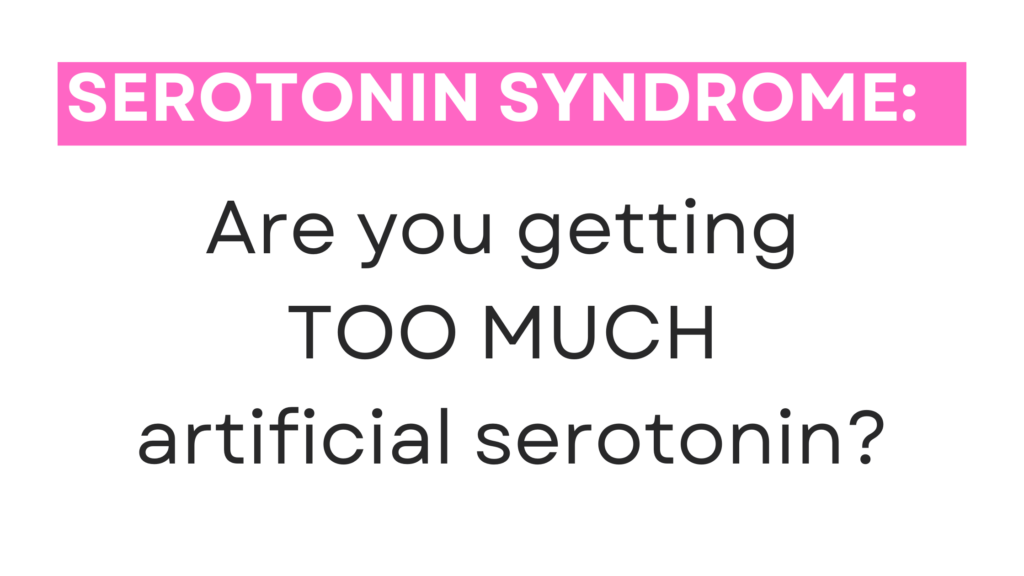
What’s The Theory for How Kratom Can Cause Serotonin Syndrome?
Kratom has shown serotonergic effects. That is, it elevates your brain’s serotonin levels, and is a big reason why kratom can improve your mood and leave you feeling awesome.
With this, comes obvious risks for serotonin syndrome. These are the risks talked about in the published case studies.
However, all of the serotonin syndrome-related deaths involving kratom involved reckless behavior combining other drugs…
from SSRIs, to meth, to a whole range of drugs together.
We don’t have to tell you the obvious problems with this.
We have established that taking many serotonergic substances together (or just a very high dose of one) can lead to serotonin syndrome.
Kratom specifically, may inhibit the metabolism of prescription serotonergic meds, like SSRIs, which makes it a terrible idea to combine kratom with ANY substances that impact serotonin.
Now let’s look at the specific research.
What Does the Research Say About The Link Between Kratom and Serotonin Syndrome?
One case study from 2022 in the Journal of Pharmacy Practice examined a 63-year-old man who took bupropion, buspirone, desvenlafaxine, trazodone, and ziprasidone, in addition to kratom.
Okay so let’s be clear here, he took 6 different substances, one of which was kratom.
While kratom played a part in this, that’s like blaming the loss of a sports team on one player, when of course, a whole team played the game.
Taking six different substances together is obviously a terrible idea.
Yet, this case study titled, “Case Report: Possible Serotonin Syndrome in a Patient Taking Kratom and Multiple Serotonergic Agents” headlined kratom, and will likely be cited by anti-kratom authorities when they talk about kratom’s dangers.
A 2021 case study published in Medicinal Science and Discovery also examined a case of overdose, this time with a combination of SSRIs, kratom, and meth. That’s right, meth. Again, though, kratom is the substance in the title of the article.
Obviously you should not do meth.
Where Does This Research Leave Us?
Well, with a few simple conclusions…
- Don’t take hard drugs that have well-established dangers like meth.
- Don’t combine six drugs together.
- Don’t take kratom alongside serotonergic substances. Kratom may exacerbate the descent to serotonin syndrome.
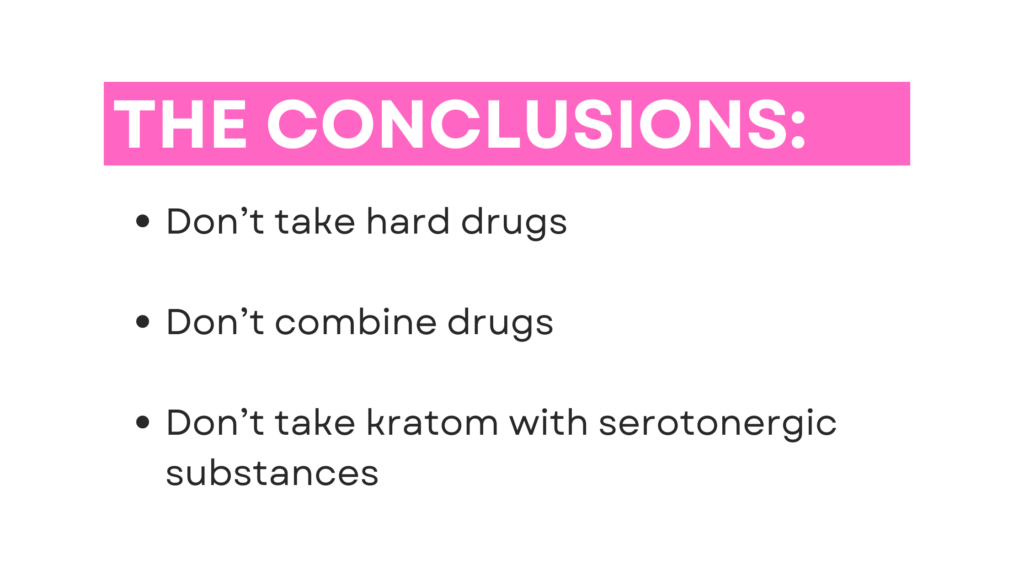
But does it tell us anything really about the safety of taking kratom on its own? No, it doesn’t.
How To Limit The Risk of Serotonin Syndrome With Kratom
Firstly, talk to your healthcare provider before taking kratom, any drugs, or any dietary supplement.
Second, AVOID combining kratom with other substances, especially those which also increase serotonin.
Third, cycle kratom. Kratom has an addictive potential and is most effective in small doses taken occasionally for specific uses (like pain relief). If you feel the need to take kratom every day, then monitor your daily doses carefully.
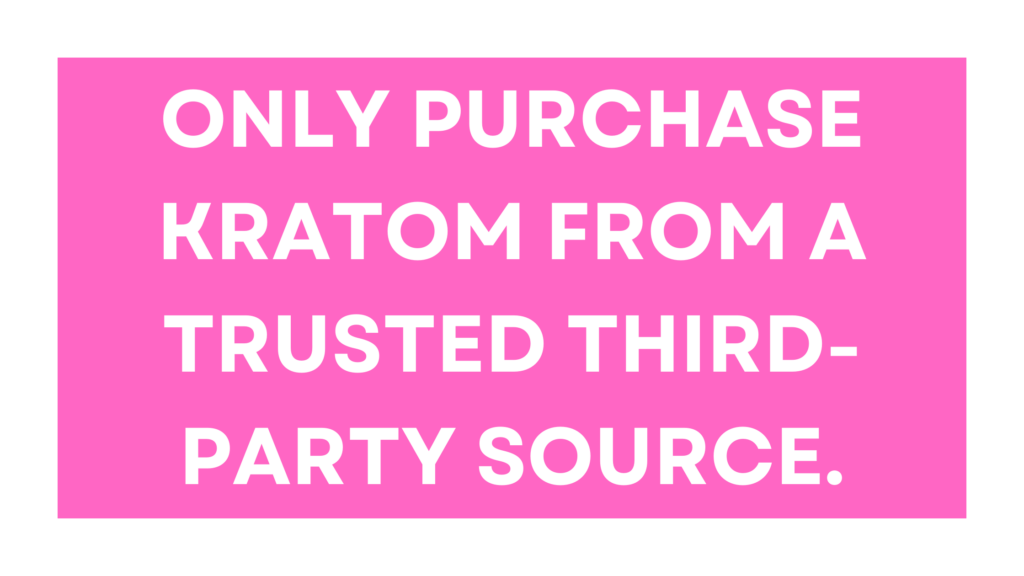
Fourth, only buy kratom from a trustworthy third-party source. Partially because of its political opponents, kratom is not regulated by the FDA. Look for brands that are third-party tested by the American Kratom Association (AKA). These brands have undergone a standard of Good Manufacturing Practices (GMP).
Taking this further, look for brands that are transparent in their manufacturing, with features like accessible purity and test results of every batch.
Brands like Viable Kratom and Hush Extracts check these boxes, and you can buy both of them here.
What Can Kratom Support With?
Kratom may help everything from your mood, to support addiction withdrawal, and even may be effective as a pre-workout supplement.
FAQ About Kratom and Serotonin Syndrome:
Q: What is kratom and its relationship to serotonin syndrome?
A: Kratom is a botanical herb from Southeast Asia known for its pain-relieving, euphoria-inducing, and addiction-curb effects. It can raise serotonin levels, potentially leading to serotonin syndrome when combined with other serotonergic substances.
Q: What is serotonin syndrome and how does kratom contribute to it?
A: Serotonin syndrome occurs when there is an excess of serotonin in the body. Serotonin is a neurotransmitter associated with positive emotions. Kratom’s serotonergic effects can elevate serotonin levels, increasing the risk of serotonin syndrome, especially when combined with other drugs that impact serotonin levels.
Q: What does research suggest about the link between kratom and serotonin syndrome?
A: Some case studies have examined individuals who experienced serotonin syndrome after consuming kratom alongside other drugs, such as SSRIs and meth. However, in these cases, the presence of multiple substances makes it challenging to solely attribute the syndrome to kratom. The research emphasizes the dangers of combining drugs rather than implicating kratom alone.
FAQ 4: How can individuals minimize the risk of serotonin syndrome when using kratom?
Q: What precautions can individuals take to reduce the risk of serotonin syndrome with kratom use?
A: To minimize the risk of serotonin syndrome:
- Consult Healthcare Provider: Prior to using kratom or any supplements, consult your healthcare provider.
- Avoid Drug Combinations: Refrain from combining kratom with other substances that raise serotonin levels.
- Cycle Kratom Use: Use kratom in small doses occasionally, especially if taken daily, to avoid dependency.
- Choose Reliable Sources: Purchase kratom from trustworthy third-party sources that undergo testing, such as those endorsed by the American Kratom Association.
- Check Manufacturing Transparency: Opt for brands that provide batch purity and test results, ensuring transparency and quality.
Q: What benefits can kratom provide and how can it be used safely?
A: Kratom may offer mood enhancement, aid addiction withdrawal, and even function as a pre-workout supplement. To use kratom safely:
- Consult Professionals: Seek advice from healthcare professionals before using kratom.
- Avoid Combination: Do not mix kratom with substances that impact serotonin levels.
- Control Usage: Take kratom in controlled, occasional doses to avoid dependence.
- Trustworthy Sources: Purchase from reputable vendors following Good Manufacturing Practices.
- Prioritize Transparency: Choose brands (like Viable Solutions) that offer transparent manufacturing and testing information for each batch.
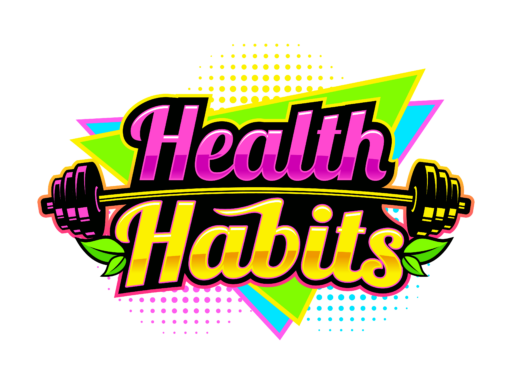
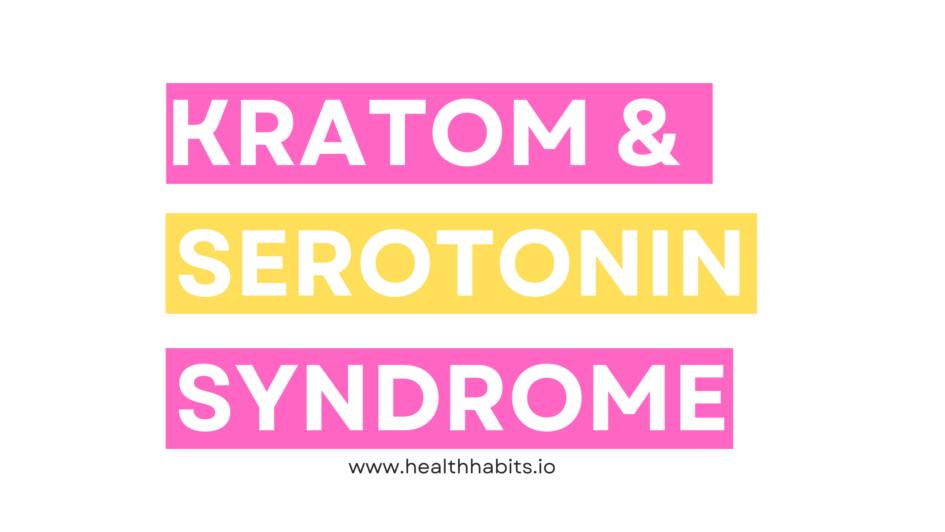
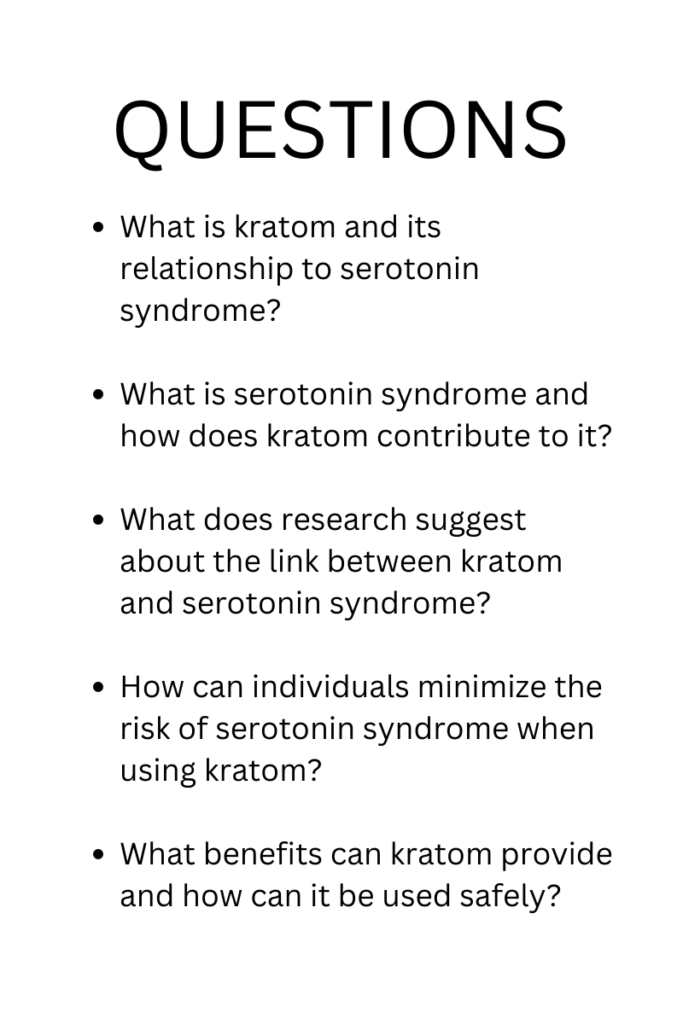
Leave a Reply